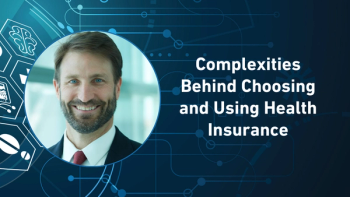
The Role of Fearless Organizations in Global Crises
Harvard Business School Professor Amy C. Edmondson talks about achieving psychological safety in the workplace.
In this installment of the Harvard Business School Healthcare Alumni Association (HBSHAA) Q&A series, Michael Wong talks to Harvard Business School Professor Amy C. Edmondson about achieving psychological safety in the workplace.
Michael Wong: From global warming to the pandemic and now with Russia’s invasion into the Ukraine, what might be the role of fearless organizations to help turn around these seemingly endless waves of incoming challenges?
Amy C. Edmondson: With the magnitude these pain points represent in today’s world, people need to have the courage and confidence to work together to solve these challenges. Still, it is extremely difficult to feel fearless; we’ve long known that individuals may lack the psychological safety to speak up within their organizations and these external factors probably contribute to a general sense of fear. Now more than ever, we need psychological safety, so people are enabled to uncover new ideas with a learning, innovation, and growth mindset.
Still, psychological safety in the workplace takes effort. The default model for nearly everyone is to go with the flow and not challenge the status quo, especially in a hierarchy. This reflex dates back to the industrial age when a command-and-control system gave managers authority to issue orders and employees followed them. While most people recognize that the workplace has evolved over time, the habits of mind from the industrial era endure, and many employees spontaneously value self-protection over self-expression contribution. After all, what is the benefit for an individual to speak up? If the idea is accepted, the benefit might accrue, longer term, to the company but not necessarily as directly to the employee. On the other hand, by speaking up, the risk of angering supervisors leads to a potential cost that is immediate. Smarter c-suite executives understand this asymmetry and flip the calculus by creating a supportive environment, and by asking questions in such a way that employees feel compelled to respond, without fear of retaliation. As a starting point, c-suite executives need to make sure that their hybrid workplace strategy supports a safety mindset.1
Well, while most c-suite executives have the financial wherewithal to walk away from their jobs, the majority of employees do not. And so, with the traditional culture of fitting in and getting along at many firms; what might be some practical strategies for companies to help employees become fearless in their daily activities?
In my 25 years of research, teaching, and engaging with c-suite executives, psychological safety and high-performance are tightly coupled. For example, Google conducted an extensive study of teams, examining more than a hundred factors and discovered that psychological safety was the single most important driver of team performance. Three common themes which successful companies have deployed include the following.2
First, the company needs to explore the link between psychological safety and high performance. Having this analysis is crucial to explain why limited resources and time should be invested in this area, versus other competing options.
Second, the firm needs to craft a culture where it is “safe” to express ideas, ask questions, and admit mistakes. Importantly, the c-suite needs to hold itself accountable that these executives’ actions support their words in order to establish the trust that is the foundation for any company’s culture and norms.
Finally, the c-suite must nurture the level of engagement and candor required in today’s knowledge economy. They need to model behaviors that their direct reports can emulate and in turn be replicated through the other layers of the organization.
These three steps will likely evoke initial uncomfortable feelings in the short-term. After all, people are hardwired to seek comfort in the immediate term. Still, thoughtful employees across the entire organization will realize the potential larger value that comes with overriding one’s desire for comfort in the short term; and engaging to create ideas that have long-term sustainability. Leading through crisis is attainable for each of us if we have the right mindset and commitment.3
Dr. Amy C. Edmondson is the Novartis Professor of Leadership and Management at the Harvard Business School. Professor Edmondson has been recognized by the biannual Thinkers50 global ranking of management thinkers since 2011, and most recently was ranked #1 in 2021. Professor Edmondson received her PhD in organizational behavior, AM in psychology, and AB in engineering and design from Harvard University.
Michael Wong is an emeritus board member of the Harvard Business School Healthcare Alumni Association.
References
1. Edmondson, Amy C. and Mortensen, Mark, “What Psychological Safety Looks Like in a Hybrid Workplace” Harvard Business Review, April 19, 2021.
2. Edmondson, Amy C., “The Fearless Organization: Creating Psychological Safety in the Workplace for Learning, Innovation, and Growth,” Wiley, November 2018.
3. Edmondson, Amy C., “How to lead in a crisis | The Way We Work, a TED series,” November 2020,
Newsletter
Stay ahead in the life sciences industry with Pharmaceutical Commerce, the latest news, trends, and strategies in drug distribution, commercialization, and market access.



